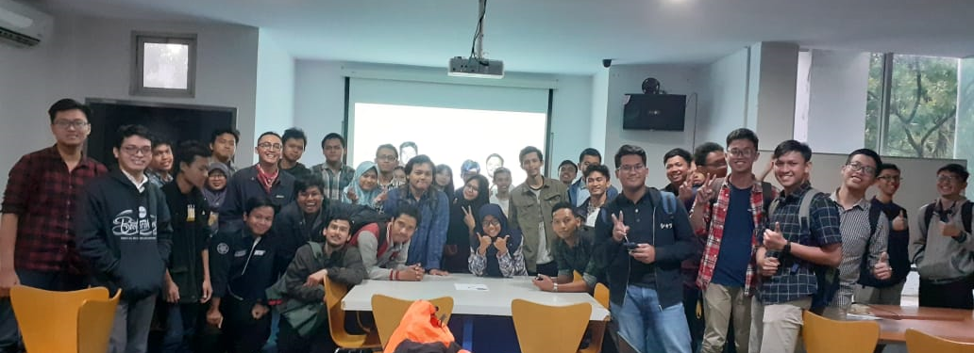Road to Be A Data and AI Ninja Session - Learning How to Code in Python

The second week of February becomes a very memorable moment for 40 young people from across Yogyakarta City because they are all selected to be the scholar of “Road to Be A Data and AI Ninja” program, an initiative from Microsoft Imagine Community to create and support young talents in technology.
In the beginning of 2020, Microsoft Imagine Community launched a program to select the potential young talents to learn and explore technology platforms from Microsoft. The program offers 4 course paths, there are How to Be a Technopreneur, Road to Be a Data and AI Ninja, Road to Be a Software Ninja, and Having Fun with Database. The program offers many useful benefits, there are online and onsite session to learn Microsoft’s technology, professional profile, certificate, and opportunities with Microsoft Partners.
After having through a competitive selection process, from administrative to short essay phase, there are 70 people selected to be the scholar of the program. They have strong basic as the future innovators in data science and artificial intelligence field. “Road to Be a Data and AI Ninja” course path became the first class of this program to be executed. The first meeting was about Python language and it was held on 14th February 2020 from 2 – 5 PM at Faculty of Engineering Library, Universitas Gadjah Mada. Mr. Ridi Ferdiana, the lead of Microsoft Imagine Community, gave his speech for the class and made the participants clearly understood the goals of the program they would participate for about 3 months.
After the speech, Nindi Kusuma as the Master of Ceremony and Faturahman Yudanto as the trainer began the learning session with an open question about participant’s skill level, made 8 teams, and chose the leader for every team. This method hopefully could give the real community sensation into the class, because it would allow knowledge-transfer to be more effective and efficient by making a team of 5 people and giving them a technical challenge. In the end of the class, there was 2 challenges about Python real study cases, and it was all successfully done by the team 5 and team 7. Bravo!
Latest News
- Pelatihan Microsoft Word Tingkat Mahir
- Global Microsoft 365 Developer Bootcamp 2020
- Critical Thinking with Visual Studio
- Cloud Computing for Higher Ed Workshop
- Product Talks 101: Handling Product with Scrum
- Road to Be A Data and AI Ninja Session - Learning How to Code in Python
- Training of Trainer - PowerPoint as Digital Teaching Materials in The Virtual Classroom of Microsoft Teams
- Data processing and management using Excel and SharePoint Online
- Monitoring the Progress of Teacher Training in Indonesia Using Microsoft Teams
- Training of Trainer – Learning Management System using Moodle and Microsoft Teams